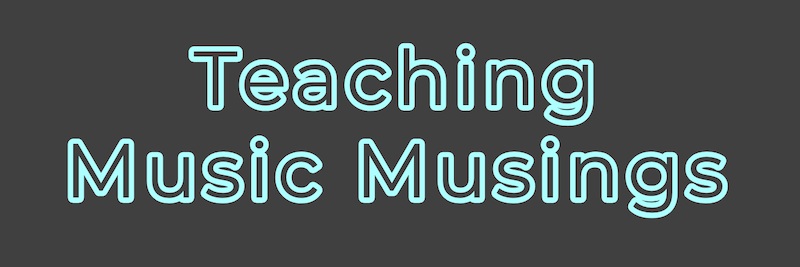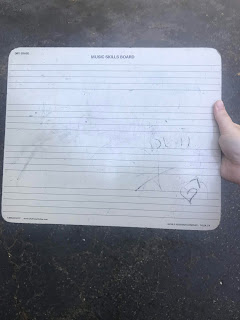Teachers, can you think of how many times you've had to do something only because it's required? Whether a governmental regulation, administrator, parent, or other stakeholder requires something, the brunt of requirements often falls into the classroom and onto the shoulders of teachers. Except when it doesn't. Sometimes it falls right onto students.
I'm currently living the teacher and student double life - teacher by day (when it's not summer break) and graduate student by night - and finding many frustrations in being required to do something as a student. Yes, requirements as a teacher are exhausting, frustrating, and tiresome, but as a student it directly impacts learning and can entirely deplete motivation.
I decided to do my masters degree now for a few different reasons. For one, it's required for me to keep teaching in my state. I also hoped to improve my pedagogy and learn new ideas I could use with my students. Both of those were great motivations, until now.
I'm taking a dreaded, required class. It's a subject I actively dislike, and one that I know I'm terrible at. I also know that it's required for the program not because it's critical material for everyone with the degree to know (it isn't) but because one group lobbied the accrediting body to make it a requirement for their own self-interest (employment of professors in large numbers) rather than because it's good for students.
Knowing this class is a requirement for no good reason has made me want to scream almost as many times as actually doing the work for the class has. With an unhelpful TA, lots of busywork, and absolutely no attempt to be culturally relevant, this course has become an absolute nightmare for me. I'm not even a little engaged. I have no desire to put in effort, and only do work for the grade. And yet I have to take it. Because it's required. Because I'm supposed to. Because it's "right". No, studying music exclusively of dead white guys and boiling every meaningful piece of auditory art down to numbers and words isn't right. It isn't good for me. It isn't helping me be a better teacher, a better human, or a better musician. Music isn't about reducing sound to numbers (both Roman and Arabic numerals to be extra pretentious) or writing paragraphs about why some guy picked a certain note 350 years ago. Music is about thinking, feeling, doing, and being artistically.
So here I am, trudging through a requirement that's burning me out and breaking me down. Taking a class that's stuck in the past in a supposedly progressive degree program. Dealing with bad pedagogy because I'm required to. It's sad, and it feels like a waste of my summer. Yet I do it, all for an overpriced piece of paper that says I met requirements decided by someone without my best interest in mind.
How many times do our students have to do something because it's required?
To be clear, I'm not advocating for the absence of rules or only coming to school when they feel like it or anything that dramatic. Sometimes, requirements are necessary and are actually for the good of students. School is required so that students can learn skills that will help them function in society. Rules are required to be followed to keep students safe. But there are some requirements that are for teacher convenience or due to regulations more than for the good of students. The excessive amount of standardized testing, for example, is not required because testing is good for kids.
I'll be reflecting on what I required for students, both formally and informally, and why or why not that's a good choice. For example, does it always make sense to require students to be sitting/standing in certain spots during direct instruction? Does it always make sense to require students to do an assessment on the day that it's in my plan book? Does it always make sense to require a student to play a particular song if they dislike it? The answer to all of these questions, I think, should be
sometimes. There might be a certain portion of a lesson's direct instruction that can't accomplish its goal without students in a specific position. But other times, a choice of position and the flexibility to move between positions might be fine. Sometimes, an assessment needs to be done on a certain day so that I can complete report cards or move on to new material, but other times flexibility to account for testing in other subjects, emotional state, and practice time can be best. In some cases, I want to or need to have students play a particular song for an assessment or to do a cooperative activities, but other times I can let them choose from a selection of songs or even decide on a song independently.
Like most things in education, there aren't easy answers or always-right platitudes that cover the depth and breadth of what goes on in a classroom, but it's worth thinking about what is required, what should be required, and why.
















